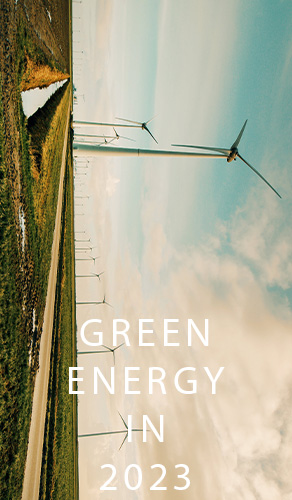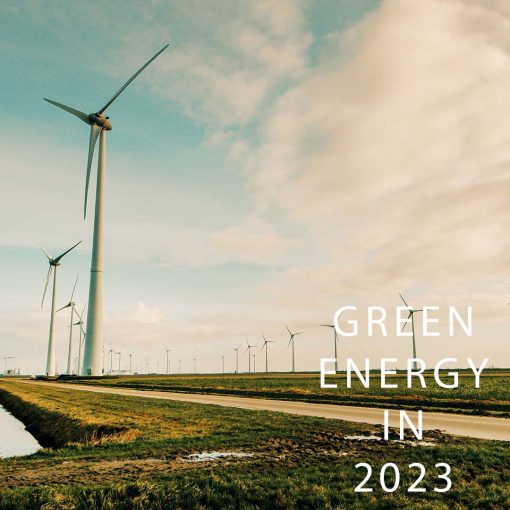
As we navigate through 2023, the urgency to transition towards clean energy has never been more pronounced. Amidst the escalating challenges of climate change, environmental degradation, and the finite nature of fossil fuels, the global community stands at a pivotal crossroads. The adoption of clean energy is not just a matter of environmental stewardship; it’s a comprehensive strategy essential for sustainable development, economic resilience, and securing a healthier planet for future generations. This article explores the multifaceted importance of creating and using clean energy in 2023.
Battling Climate Change
The foremost imperative for shifting towards clean energy lies in the battle against climate change. The overwhelming consensus among scientists is that the burning of fossil fuels is the primary driver of global warming, leading to extreme weather events, rising sea levels, and detrimental impacts on biodiversity. Transitioning to clean energy sources such as solar, wind, and hydroelectric power significantly reduces greenhouse gas emissions, particularly carbon dioxide, thereby mitigating the effects of climate change. In 2023, every megawatt of clean energy generated is a step towards stabilizing the global climate.

Promoting Public Health
The health implications of relying on fossil fuels are profound. Air and water pollution resulting from the extraction and burning of these fuels contribute to a myriad of health issues, including respiratory and cardiovascular diseases, cancer, and premature death. Clean energy, in contrast, offers a pollution-free alternative, significantly improving air quality and public health outcomes. By investing in clean energy in 2023, we are investing in the well-being of communities worldwide, reducing healthcare costs and improving quality of life.
Enhancing Energy Security
Energy security is a critical concern for countries globally. Reliance on fossil fuel imports exposes economies to volatile prices, supply disruptions, and geopolitical tensions. Clean energy, derived from abundant and widely available resources like the sun and wind, can be locally produced, reducing dependency on foreign oil and gas. This shift not only bolsters national energy security but also supports local economies by keeping energy expenditures within domestic borders. In 2023, the push for clean energy is also a push for energy independence.
Driving Economic Growth
The clean energy sector is a burgeoning engine for economic growth. The global shift towards renewable energy is accompanied by substantial investments in technology, infrastructure, and human capital. This transition is creating millions of jobs in manufacturing, installation, maintenance, and research and development. Moreover, as the cost of renewable energy technologies continues to fall, clean energy is becoming increasingly cost-competitive with traditional energy sources, driving further investment and innovation. In 2023, embracing clean energy is not only environmentally prudent but economically wise.
Ensuring a Sustainable Future
At its core, the transition to clean energy is about securing a sustainable future. It’s about ensuring that future generations inherit a planet that is livable, vibrant, and capable of sustaining human life and biodiversity. Clean energy provides a path to decouple economic growth from environmental degradation, enabling societies to thrive without depleting natural resources or harming the planet. In 2023, the pursuit of clean energy is a commitment to sustainability, equity, and the long-term well-being of the Earth and its inhabitants.
Challenges and Opportunities
While the benefits of clean energy are clear, the path to a fully renewable energy system presents challenges. These include the need for significant upfront investment, the development of energy storage solutions to address intermittency issues, and the upgrading of energy infrastructure to accommodate decentralized power generation. However, these challenges also present opportunities for innovation, collaboration, and leadership.
Governments, businesses, and individuals have critical roles to play in accelerating the transition to clean energy. Policy frameworks that support renewable energy development, incentives for clean energy investment, and public awareness campaigns are essential. Moreover, technological advancements in energy storage, smart grids, and energy efficiency can enhance the reliability and effectiveness of clean energy systems.
Conclusion
In 2023, the importance of creating and using clean energy cannot be overstated. It is a cornerstone for addressing climate change, protecting public health, enhancing energy security, driving economic growth, and ensuring a sustainable future. The transition to clean energy is a monumental challenge, but it is also an unparalleled opportunity for global cooperation and innovation. By prioritizing clean energy, we can forge a path towards a resilient, prosperous, and sustainable world for all.
